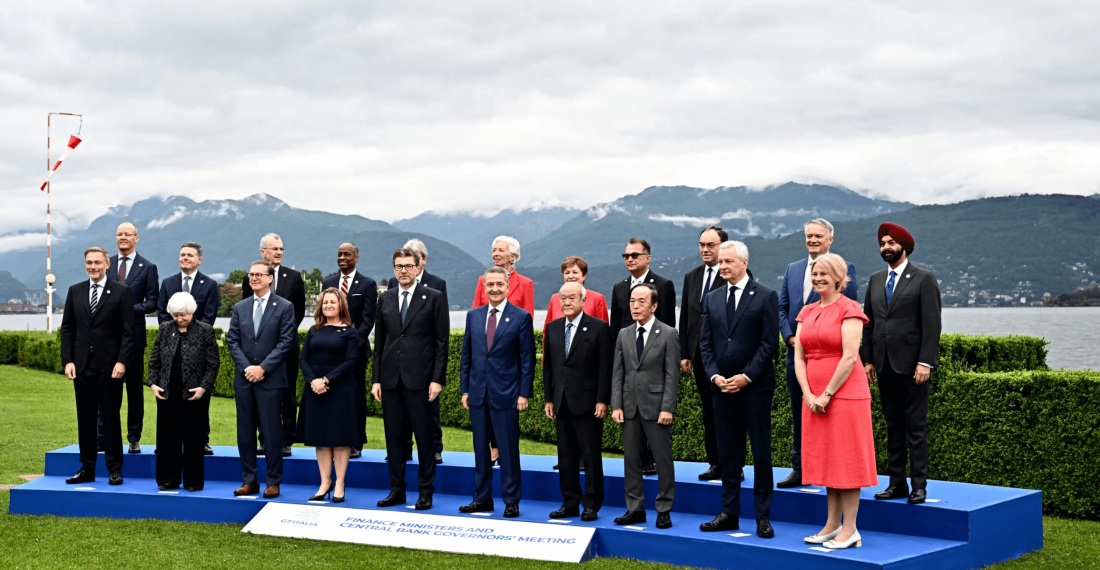The G7 will explore ways to use future revenues from frozen Russian assets to help Ukraine. Following Russia's invasion of Ukraine in February 2022, the G7 and its allies froze around $300 billion in Russian assets. "We are making progress in our discussions on potential avenues to bring forward the extraordinary profits stemming from immobilized Russian sovereign assets to the benefit of Ukraine," the draft statement said. G7 negotiators have been discussing for weeks how best to use these assets, which include major currencies and government bonds held mainly in European vaults. The United States (US) has been urging its G7 partners - Japan, Germany, France, Britain, Italy and Canada - to support a loan that could provide Kyiv with up to $50 billion in the near term. The cautious language of the statement, lacking figures or specifics, underlines the many legal and technical issues that would need to be resolved before such a loan could be issued. A G7 source indicated that there would be no significant changes to the statement before the final version is released later on Saturday (25 May).
Ukrainian Finance Minister Serhiy Marchenko, whose country is struggling to fend off a Russian offensive in the north and east, will attend the finance ministers and central bankers meeting in Stresa, northern Italy. The aim is to present financing options for Ukraine to G7 leaders at a summit in mid-June, the statement said. "Consistent with our respective legal systems, Russia's sovereign assets in our jurisdictions will remain immobilized until Russia pays for the damage it has caused to Ukraine," the G7 said.
China's growing export strength and what G7 ministers call its industrial "overcapacity" was another central theme of the two-day meeting in northern Italy. "We express concerns about China's comprehensive use of non-market policies and practices that undermines our workers, industries, and economic resilience," the statement said. Last week, the US announced steep tariff hikes on a range of Chinese imports, including electric car batteries, computer chips and medical products. Although Washington has not urged its allies to take similar action, Treasury Secretary Janet Yellen said this week that she wanted the G7 to express a unified opposition to China's industrial and trade policies. The G7 also called on Israel to maintain correspondent banking links between Israeli and Palestinian banks to facilitate vital transactions, trade and services. This echoes a warning by US Treasury Secretary Janet Yellen on Thursday (23 May) against cutting off a vital financial lifeline to the Palestinian territories.
Source: commonspace.eu with Reuters and agencies
Photo: Finance ministers and central bank governors at the G7 finance ministers' meeting in Stresa. Getty Images






